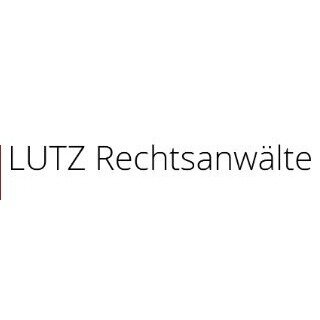Best Energy, Environment & ESG Lawyers in Stuttgart
Share your needs with us, get contacted by law firms.
Free. Takes 2 min.
List of the best lawyers in Stuttgart, Germany
About Energy, Environment & ESG Law in Stuttgart, Germany
Energy, Environment & ESG (Environmental, Social, and Governance) law is an increasingly important and complex field in Stuttgart, Germany. As a major industrial hub located in the heart of Baden-Württemberg, Stuttgart is home to automotive giants, technology companies, startups, and a vibrant business community. This makes the region a focal point for regulatory developments and legal compliance matters related to energy transition, pollution control, sustainable business conduct, and corporate reporting standards. Recent legislative efforts at both the federal and EU levels have heightened the need for clear legal understanding and strategic planning in these areas. Stakeholders must now address climate protection, renewable energies, emissions management, environmentally responsible business strategies, and social governance topics to comply with both local and international expectations.
Why You May Need a Lawyer
Navigating the intersection of energy policies, environmental regulations, and ESG requirements can be challenging without specialized legal expertise. Common situations that lead individuals and businesses to seek legal help in Stuttgart include:
- Complying with renewable energy installation requirements, such as solar panels or wind turbines
- Obtaining environmental permits or dealing with environmental impact assessments for new projects
- Understanding EU directives and their local implementation, such as the Corporate Sustainability Reporting Directive (CSRD) and the German Supply Chain Due Diligence Act (LkSG)
- Addressing suspected violations of environmental regulations or defending against government enforcement actions
- Advising on energy supply contracts, grid access, and dispute resolution related to energy supply
- Assisting companies in ESG risk management, reporting, and stakeholder communication
- Handling contaminated sites, land remediation and redevelopment projects
- Dealing with emission rights trading and carbon offset requirements
- Resolving disputes regarding liability for pollution, noise, or other environmental harms
- Guiding organizations through evolving ESG standards and voluntary sustainability initiatives
Local Laws Overview
The city of Stuttgart is subject to a combination of federal German laws, European Union directives, and specific regulations of the State of Baden-Württemberg. Some of the most relevant legal frameworks include:
- German Renewable Energy Sources Act (EEG) - Promotes the expansion of renewable energy sources such as wind and solar
- Federal Immission Control Act (BImSchG) - Regulates air pollution, noise, and emissions from industrial facilities
- Waste Management Act (KrWG) - Governs waste avoidance, disposal, and recycling responsibilities
- German Climate Protection Law (KSG) - Enforces Germany's climate targets, with implications for businesses and municipalities
- German Supply Chain Due Diligence Act (LkSG) - Requires larger companies to ensure human rights and environmental standards in their supply chains
- Regional and local development plans - Stuttgart has adopted climate protection concepts and urban sustainability strategies
- EU Taxonomy Regulation and CSRD - Impose sustainability reporting and transparency obligations on businesses
- Environmental permitting processes at the state and city level - Required for many construction, industrial, and energy projects
Due to ongoing legislative developments at the EU and national levels, businesses and individuals in Stuttgart must regularly review their compliance with these complex and interconnected regulations.
Frequently Asked Questions
What is ESG and why does it matter for companies in Stuttgart?
ESG stands for Environmental, Social, and Governance. It refers to non-financial factors that influence a company's operations, risk management, and reputation. For companies in Stuttgart, integrating ESG practices is crucial to comply with regulations, meet stakeholder expectations, and maintain competitiveness in both domestic and international markets.
What are the key energy laws affecting businesses in Stuttgart?
The German Renewable Energy Sources Act (EEG) and the Energy Industry Act (EnWG) are two major laws. They require businesses to support energy transition efforts, often by sourcing energy responsibly, improving energy efficiency, and enabling grid access for renewables.
Do small and medium enterprises (SMEs) have to comply with ESG regulations?
Currently, most strict ESG reporting obligations apply to large companies, especially those with over 500 employees. However, SMEs in Stuttgart may be indirectly affected as part of supply chains, and should stay informed about evolving requirements.
How are environmental permits obtained for construction or industrial projects?
Permits must be requested from local or state authorities, such as the Stuttgart municipal administration or the regional council. Applications often require comprehensive environmental impact assessments and public participation.
What happens if a company violates environmental regulations?
Violations can result in fines, remediation orders, operational restrictions, and, in serious cases, criminal prosecution. Authorities in Stuttgart actively monitor compliance and enforce environmental protection laws.
Who monitors emissions and pollution levels in Stuttgart?
Various government bodies, including the regional council (Regierungspräsidium Stuttgart) and the State Environment Agency (LUBW), track emissions and pollution in cooperation with local authorities.
Can individuals or communities take action against environmental harm?
Yes. Individuals and communities can file complaints, participate in public consultations, or take legal action if their rights or the environment are harmed as a result of a project or ongoing operations.
What is the German Supply Chain Act and how does it apply locally?
The LkSG requires larger companies based in Germany, including those in Stuttgart, to monitor and ensure sustainable and ethical practices throughout their supply chains, covering environmental protection and human rights.
Are there incentives for renewable energy adoption in Stuttgart?
Yes. Both federal and Baden-Württemberg state programs offer funding, tax benefits, or guaranteed feed-in tariffs to encourage investment in renewable energy technologies such as solar PV panels and heat pumps.
Why should I consult a lawyer for energy, environment, or ESG matters?
Laws in this area are complex and frequently change. Legal guidance ensures compliance, reduces liability risks, and helps you take advantage of incentives. In Stuttgart, local lawyers are familiar with both the legal and administrative landscape.
Additional Resources
If you need more information or guidance regarding Energy, Environment & ESG law in Stuttgart, you may find the following organizations and agencies useful:
- Stuttgart City Administration - Environment and Climate Protection Office (Amt für Umweltschutz Stuttgart)
- Ministry for the Environment, Climate and Energy Baden-Württemberg
- Regierungspräsidium Stuttgart (regional council setting and enforcing policies)
- Landesanstalt für Umwelt Baden-Württemberg (LUBW, The State Environment Agency)
- Chamber of Commerce and Industry of Stuttgart (IHK Region Stuttgart)
- German Environmental Aid (Deutsche Umwelthilfe)
- Local legal associations and bar associations
- Baden-Württemberg State Energy Agency (KEA-BW)
Next Steps
If you feel you need legal advice or representation concerning Energy, Environment & ESG in Stuttgart, consider the following steps:
- Gather all relevant documents, permits, correspondence, and records related to your issue
- Research and shortlist law firms or lawyers specializing in environmental, energy, or ESG matters
- Contact potential legal advisors to discuss your case, their experience, and fee structures
- Arrange a consultation to identify the best next steps, such as official filings, permit applications, or legal defenses
- Stay informed about new developments by checking official announcements or subscribing to updates from local authorities
Seeking professional guidance early can prevent costly mistakes, ensure regulatory compliance, and help you achieve your sustainability or business objectives within the legal framework of Stuttgart and beyond.
Lawzana helps you find the best lawyers and law firms in Stuttgart through a curated and pre-screened list of qualified legal professionals. Our platform offers rankings and detailed profiles of attorneys and law firms, allowing you to compare based on practice areas, including Energy, Environment & ESG, experience, and client feedback.
Each profile includes a description of the firm's areas of practice, client reviews, team members and partners, year of establishment, spoken languages, office locations, contact information, social media presence, and any published articles or resources. Most firms on our platform speak English and are experienced in both local and international legal matters.
Get a quote from top-rated law firms in Stuttgart, Germany — quickly, securely, and without unnecessary hassle.
Disclaimer:
The information provided on this page is for general informational purposes only and does not constitute legal advice. While we strive to ensure the accuracy and relevance of the content, legal information may change over time, and interpretations of the law can vary. You should always consult with a qualified legal professional for advice specific to your situation.
We disclaim all liability for actions taken or not taken based on the content of this page. If you believe any information is incorrect or outdated, please contact us, and we will review and update it where appropriate.
Browse energy, environment & esg law firms by service in Stuttgart, Germany
Stuttgart, Germany Attorneys in related practice areas.











